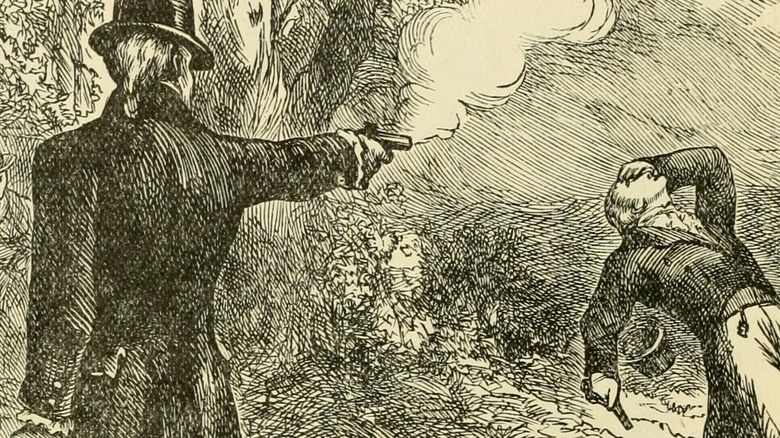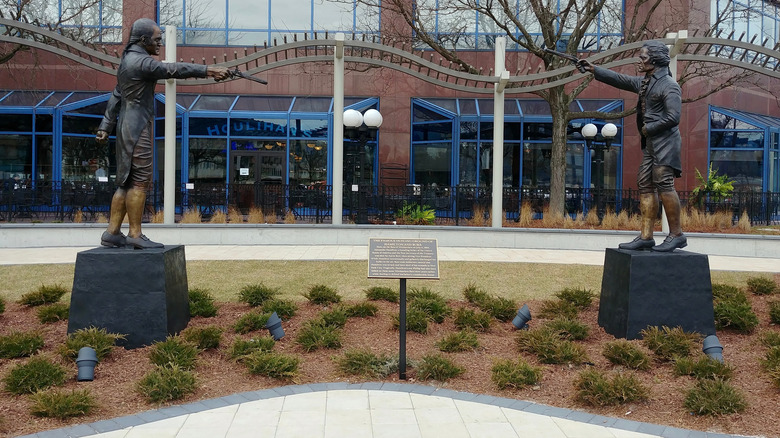Here's Why Alexander Hamilton And Aaron Burr Really Dueled
Alexander Hamilton and Aaron Burr had been political adversaries for years before their rivalry turned violent. They represented two different political parties –Hamilton a leading Federalist, and Burr an important Republican. The clash between Hamilton and Burr ran deeper than conflicting political ideologies, though. Hamilton seemed to genuinely loathe Burr. He thought that Burr "loves nothing but himself" and felt "it was a religious duty to oppose his career," according to HistoryNet. Hamilton went after Burr during the 1800 presidential election, using his influence on his fellow Federalists in Congress to support Thomas Jefferson over Burr. Burr ended up as vice president.
By the time of the 1804 New York State gubernatorial campaign, Burr had had enough of Hamilton's meddling. Hamilton again campaigned against Burr. After losing the election, Burr learned that a newspaper had published a letter that included Hamilton's critical comments about him (via Gilder Lehrman Institute of American History). These printed remarks seemed to send Burr over the edge, and Burr challenged Hamilton to a duel to get him to apologize. Hamilton refused, and the pair moved forward with plans for an "interview," as a duel was known at the time. Although duels were illegal, politicians sometimes issued these challenges to restore their clout with the public or to make their opponents look weak if they refused. Few of these conflicts resulted in a public face-off, and many only existed in an exchange of letters (via Gilder Lehrman Institute of American History). Hamilton had been in 10 such previous clashes.
One of America's most notorious duels
On July 11, 1804, Hamilton and Burr met in Weehawken, New Jersey, by the Hudson River. This choice of location was deeply morbid. Hamilton's son Philip had died there in a duel only three years earlier (via Constitution Center).
Reports vary, but it is thought that Hamilton accidentally fired first, missing Burr by a wide margin (via HistoryNet). Burr, however, took his shot, striking Hamilton in the right side. The wound Hamilton suffered proved to be fatal; he died the following day. Burr was soon charged with murder in New York and New Jersey, and he went into hiding for a time (via Gilder Lehrman Institute of American History). Burr never held an elected position again, and Hamilton was given a hero's send-off (via National Archives).
Since this fateful day, there has been much speculation on why Hamilton didn't just refuse to duel. Some have said he went through with the duel to preserve his honor, while others have wondered whether he saw himself as a possible martyr (via HistoryNet). Hamilton's career was fading, and he was still grieving the loss of his son Philip. He wrote a good-bye letter to his wife Eliza and a statement against duels that was published after his death. In this message, Hamilton explained that he would not fire on Burr (via National Archives).

